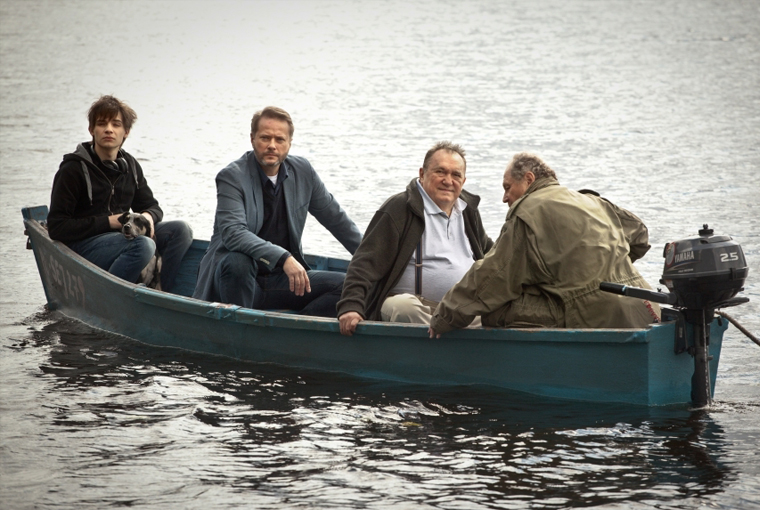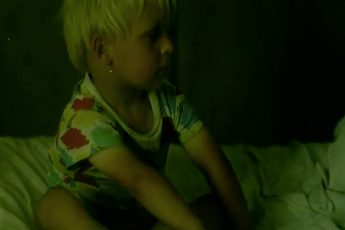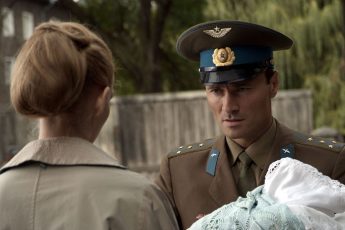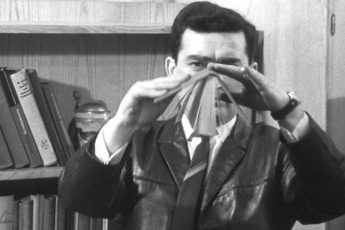The Middle Generation's Burden
Piotr Trzaskalski’s My Father’s Bike (Mój rower, 2012)
Vol. 41 (May 2014) by Julia Zelman
My Father’s Bike is a classic example of a film that should have ended five or ten minutes earlier. It ends with a coup de cinéma so spectacularly corny, so overloaded with symbolism, that it’s hard to believe that the film had earlier contained hints of subtlety. True, this tale of three male generations in a dysfunctional, musically-inclined family can only really arc in one direction – estranged fathers and sons must learn to accept and express love – so there are few real surprises. But there are also moments of appealingly low-key reconciliation in the fields and lakesides of beautiful rural Poland, even if such instances are lost in the general rush to make a crowd-pleasing, positive-message film.
When elderly jazz musician Wlodek’s wife leaves him for another man, his concert pianist son Pawel – himself divorced – and teenaged grandson Maciek fly to Lodz to try to settle things. While Wlodek and Maciek quickly bond (who wouldn’t love a grandpa who played clarinet with Benny Goodman?) Pawel is harried by both the younger and older generations, a father whom he finds self-centered and irresponsible and a son who shows him nothing but contempt. The viewer can sympathize with the helplessness of a man whose tyrannical parent has become a sweet-natured old man kind to children and animals; Pawel’s frustration has essentially lost its target. But Pawel comes off as so dour and unpleasant that, inversely, his redemption seems an inevitable outcome (thanks to the laws of popular screenwriting).
The teenage Maciek, meanwhile, thankfully evades the stereotype of the sulky teen. Though actively antagonizing his father, he mostly seems mature and self-sufficient. Toward the end of the film, he reveals a future development that will force him to grow up fast. The film doesn’t explore this event very much, but only hints that young Maciek is probably readier than he thinks.
Maciek does not seem to have the musical interests or gifts of his father and grandfather. Altogether, the theme of music feels rather underused, especially given the casting of the venerable jazz musician Michal Urbaniak as Wlodek. Nonetheless, Urbaniak is a low-key, melancholically good-humored presence. The chemistry between the three actors (Artur Zmijewski and young Krzysztof Chodorowski are the other two) is another asset to the film.
As fine as they are, the boys could have used some help. My Father’s Bike lacks much screentime for Basia, Wlodek’s wife and Pawel’s mother. Of course, there is nothing wrong in principle with concentrating on the men’s relationships. In this case, though, Basia is so important to Pawel and Wlodek’s emotional lives that to leave her out rather disingenuously simplifies the story. Thence perhaps the screenwriters’ resort to melodramatic fillers.
The film also underplays a nonetheless interesting aspect of the story: the return of two expatriates to Poland. Pawel is obsessed with his upcoming performance in Berlin and Maciek is going to school in England; Lodz is a detour for both of them. Pawel suffers from a veritable hatred of his hometown, declaring that “the whole city should be torn down” – particularly the club where his parents met. He conflates father and fatherland, apparently feeling that his family history has contaminated Lodz irretrievably. His opinions change, of course, but in the end each man returns to his chosen country. The journey ends in physical estrangement, a sadly realistic note for a film about reconciliation.




Leave a Comment